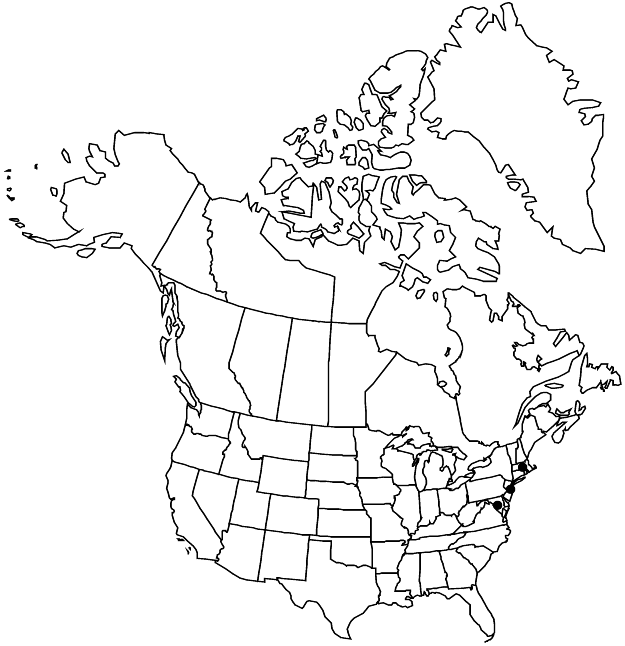Spergula morisonii
Rev. Bot. Recueil Mens. 2: 424. 1847.
Plants glabrous or densely pubescent or glandular. Stems often branched proximally, 5–35 cm. Leaf-blades usually flat, 0.3–1.5 (–2) cm, usually not channeled abaxially. Pedicels erect to ascending, spreading or sometimes reflexed in fruit, sometimes secund. Flowers: sepals 3–4 mm; petals ovate, 2/3–7/8 times as long as sepals in flower, apex obtuse; stamens usually 10. Capsule valves 3.5–6 mm. Seeds winged, lenticular, 0.9–1 mm wide, surface minutely roughened or low-tuberculate (50×), with marginal ring of tan, club-shaped papillae; wings light-brown to brownish black, 0.2–0.3 mm wide. 2n = 18 (Europe).
Phenology: Flowering spring–early summer.
Habitat: Sandy roadsides, disturbed areas
Elevation: 10-100 m
Distribution

Introduced; Md., Mass., N.J., Europe
Discussion
Spergula morisonii was first reported for North America from New Jersey in 1966; the earliest collections date from 1917 (D. B. Snyder 1987). It should be expected elsewhere in the flora area; the collections from Maryland and Massachusetts date from 2002 and 2000 respectively, with the Maryland population described as including “thousands of plants” (B. W. Steury 2004).
Selected References
None.